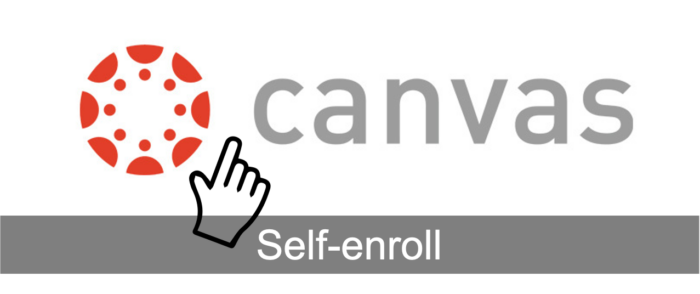Equity and Inclusion Student Course Library
MCC students have access to fully online Equity and Inclusion training courses via Canvas. Courses are assigned to themed modules. When all criteria are met in a module (80 or higher score for training courses), students earn badges that are awarded in Canvas. Training Source: Vector Solutions
Claim a Badge
- Go to the Canvas course where the badge was earned.
- Click on Badges in the course navigation. If you have not met all criteria for the badge, the badge will appear grayed out on the page.
- Hover over the badge and click View Details.
- Review the badge information.
- Download or share your badge.

Personal Skills for a Diverse Campus, Full and Refresher
69 minutes
The full and refresher courses are about how students can contribute to and get the most out of their educational experience and in any diverse community where they choose to live, learn and work. We’ll cover baseline definitions like “diversity,” “stereotype” and “microaggressions” as well as concepts like anticipating impact, using up-to-date and inclusive identity terms and ways to stop microaggressions. The topics include: higher education’s commitment to diversity and what it means for students, defining diversity inclusively, engaging comfortably with difference, examining assumptions, searching for similarities, anticipating impact and microaggressions and their impact.

Becoming an Ally, Part 1 & 2
36 minutes
Practicing ally ship is an important and rewarding endeavor. As an ally, you can develop new relationships with people who share the values of equity and inclusion. And you can make new personal and professional connections within your community. This course provides course takers with an overview of the tools needed to practice ally ship. Topics include defining ally ship, how to approach ally ship, ways to educate yourself as an ally, ways of learning about inequity and privilege as it relates to ally ship.
Acting as an ally helps turn personal goals about diversity and inclusion into everyday choices and actions that support members of marginalized groups and break down institutionalized discrimination. This course provides course takers of all experience levels with the tools needed to practice ally ship. Topics include: the differences between effective and ineffective ally ship; and ways to sustain ongoing ally ship work.

Building Antiracist Culture in Your Organization
24 minutes
Today, the question isn’t so much whether, but how organizational practices and policies create a culture that disadvantages people of color. This course is designed to identify the ways in which racism may operate within an organization and provide skills for moving beyond recognition to taking action that builds and sustains antiracist culture.Topics covered include why it’s important to publicize a commitment to be an antiracist organization; how climate assessments and policy reviews can build trust and confidence in an organization; why antiracism must emerge from and be centered on BIPOC perspectives; and the steps for implementing antiracist change.

Cultural Appropriation Versus Appreciation
14 minutes
This course defines cultural appropriation and explains how it relates to an imbalance of power dynamics and a history of oppression in the culture being appropriated. Participants will examine cultural appreciation and learn how to engage with diverse cultures by taking the time to listen and seek information. Participants will also learn how cultural appropriation can cause lasting financial, social, and emotional harm for members of marginalized cultures.

Diversity Competent Mentoring, Part 1-3
36 minutes
This course describes the value of developmental networks to a diversity-competent mentor. Course takers will examine sponsorship, employee resource groups – or ERGS, and group mentoring models, while determining the potential benefits for people in marginalized groups. Mentors will consider the benefits and pitfalls of each type of mentoring relationship and learn which models work best in a variety of situations.
This course helps mentors understand how relational mentoring can help diverse candidates uncover hidden rules, integrate into the workplace without sacrificing their identity, and ultimately find success. Course takers will explore the importance of setting boundaries and goals, how to avoid mentee symbolism and deindividuation, the benefits of unheard perspectives and distinctive skills, and how to integrate and include those perspectives and skills in the workplace.
This course identifies four common manifestations of bias that people from marginalized groups often encounter in academic and professional environments. Course takers will learn practical strategies for combatting both the presence and impact of bias in the workplace.

Students of Color at Predominantly White Institutions: First-Hand Narratives
19 minutes
This course helps higher education faculty understand the unique challenges students of color face while enrolled in predominately white institutions. It relies on narratives of students who have experienced first-hand the harmful impact of being stereotyped, feeling tokenized, being doubted and undervalued, facing hostility, feeling isolated, and code switching.

Supporting Students of Color at Predominantly White Institutions
28 minutes
For students of color, choosing to attend a predominantly white institution does not come without the possibility of encountering racism and racial discrimination. Emotional stress, rooted in fear of failure and exposure to prejudice and exclusion, is a common and undue burden for these students. This course provides faculty and staff members at predominantly white institutions with an overview of how to support students of color within their learning community. Topics include: the kinds of race-based discrimination and marginalization most commonly experienced by students of color at predominantly white institutions, ways to shift the onus for creating an equitable and safe college experience from students of color to the institution, and skills for faculty, administrators and staff to help students of color be successful.

